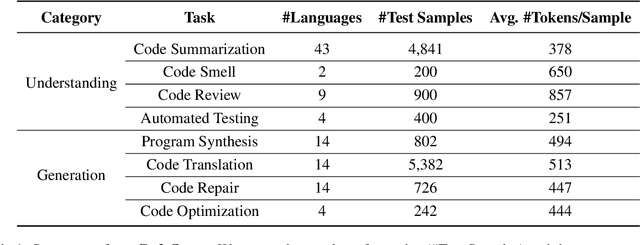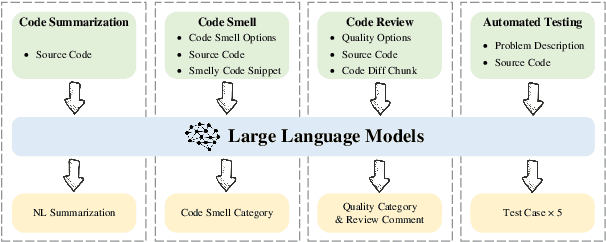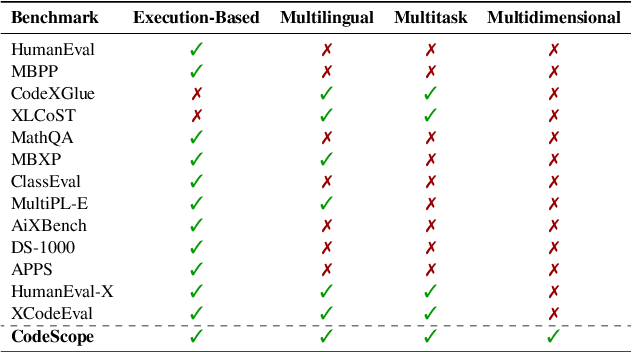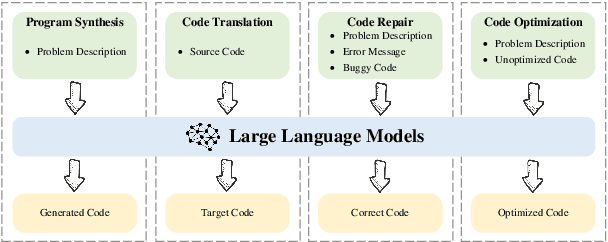Yunkun Wang
Do Code LLMs Understand Design Patterns?
Jan 08, 2025

Abstract:Code Large Language Models (LLMs) demonstrate great versatility in adapting to various downstream tasks, including code generation and completion, as well as bug detection and fixing. However, Code LLMs often fail to capture existing coding standards, leading to the generation of code that conflicts with the required design patterns for a given project. As a result, developers must post-process to adapt the generated code to the project's design norms. In this work, we empirically investigate the biases of Code LLMs in software development. Through carefully designed experiments, we assess the models' understanding of design patterns across recognition, comprehension, and generation. Our findings reveal that biases in Code LLMs significantly affect the reliability of downstream tasks.
CodeScope: An Execution-based Multilingual Multitask Multidimensional Benchmark for Evaluating LLMs on Code Understanding and Generation
Nov 14, 2023



Abstract:Large Language Models (LLMs) have demonstrated remarkable performance on coding related tasks, particularly on assisting humans in programming and facilitating programming automation. However, existing benchmarks for evaluating the code understanding and generation capacities of LLMs suffer from severe limitations. First, most benchmarks are deficient as they focus on a narrow range of popular programming languages and specific tasks, whereas the real-world software development scenarios show dire need to implement systems with multilingual programming environments to satisfy diverse requirements. Practical programming practices also strongly expect multi-task settings for testing coding capabilities of LLMs comprehensively and robustly. Second, most benchmarks also fail to consider the actual executability and the consistency of execution results of the generated code. To bridge these gaps between existing benchmarks and expectations from practical applications, we introduce CodeScope, an execution-based, multilingual, multi-task, multi-dimensional evaluation benchmark for comprehensively gauging LLM capabilities on coding tasks. CodeScope covers 43 programming languages and 8 coding tasks. It evaluates the coding performance of LLMs from three dimensions (perspectives): difficulty, efficiency, and length. To facilitate execution-based evaluations of code generation, we develop MultiCodeEngine, an automated code execution engine that supports 14 programming languages. Finally, we systematically evaluate and analyze 8 mainstream LLMs on CodeScope tasks and demonstrate the superior breadth and challenges of CodeScope for evaluating LLMs on code understanding and generation tasks compared to other benchmarks. The CodeScope benchmark and datasets are publicly available at https://github.com/WeixiangYAN/CodeScope.
 Add to Chrome
Add to Chrome Add to Firefox
Add to Firefox Add to Edge
Add to Edge